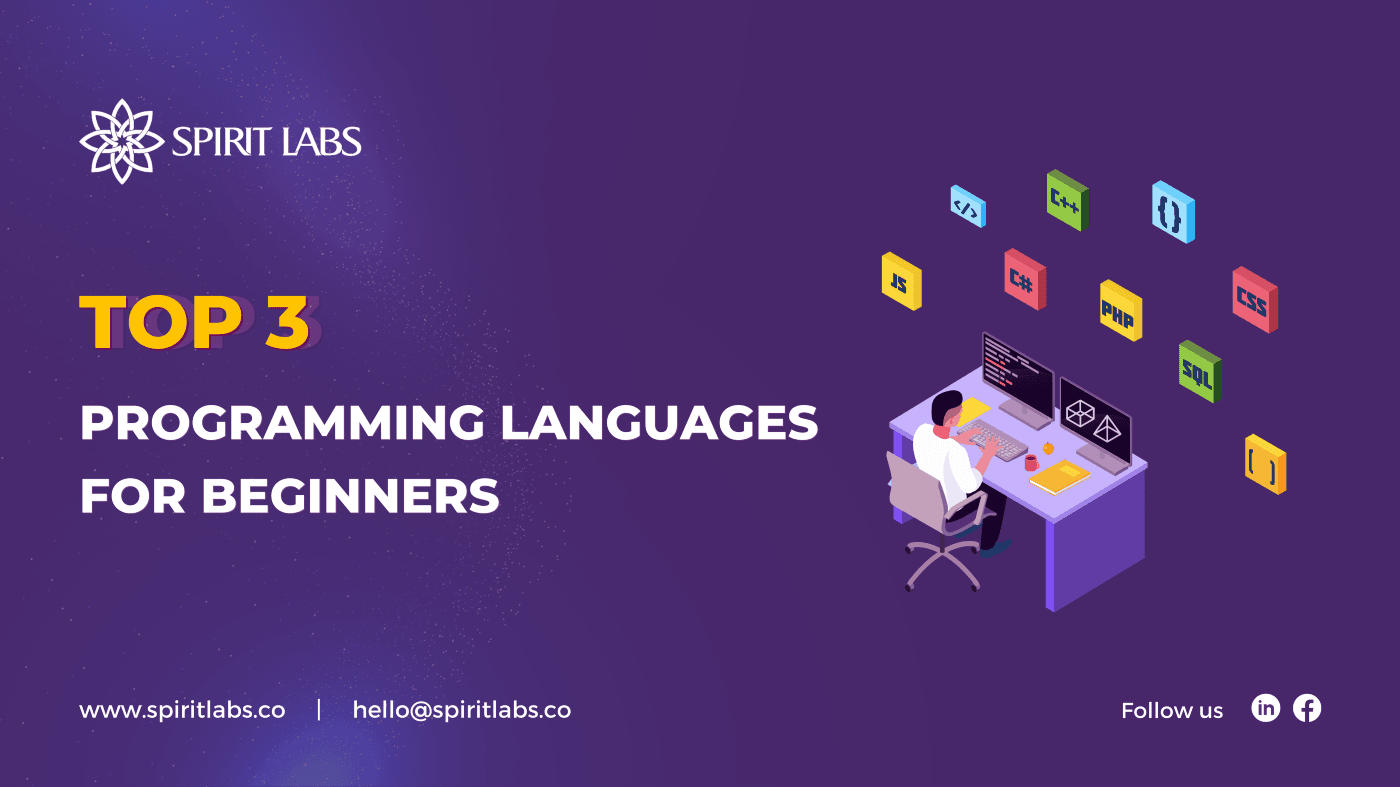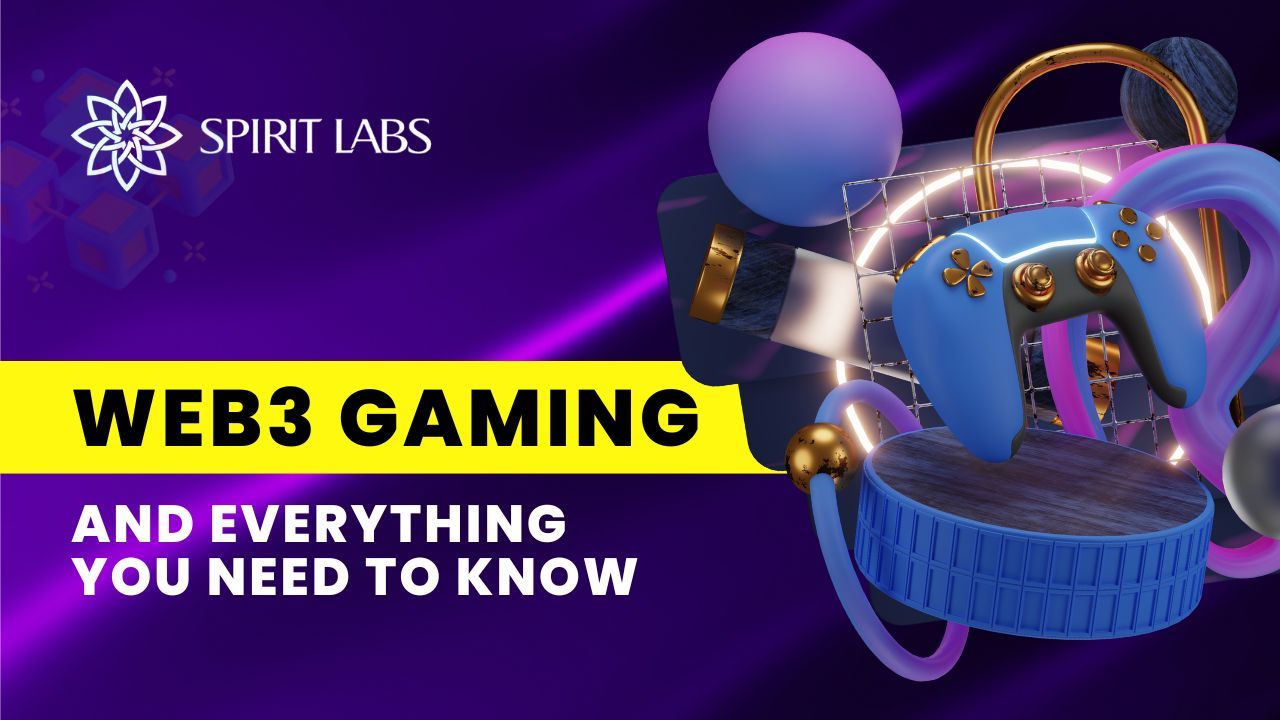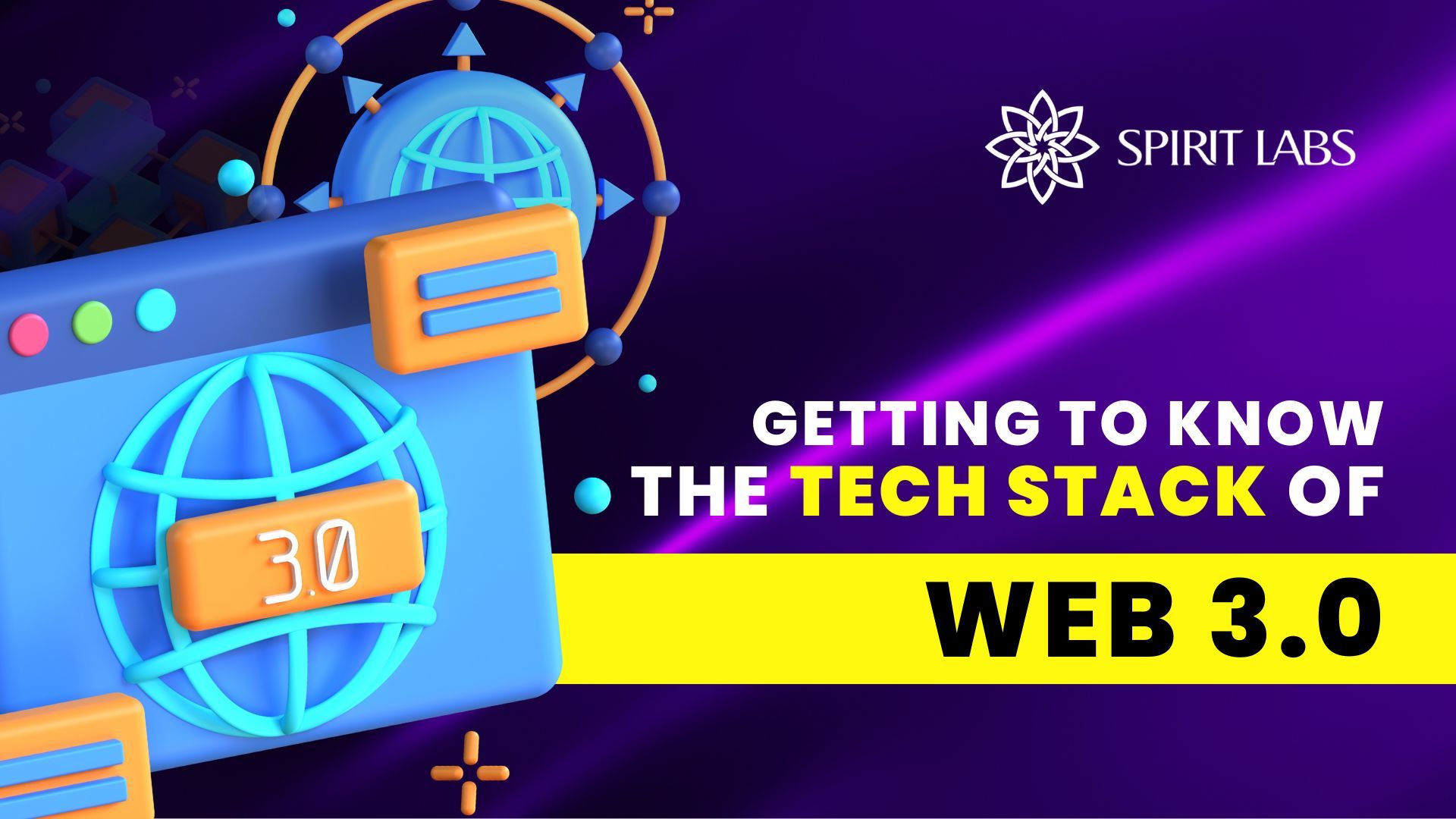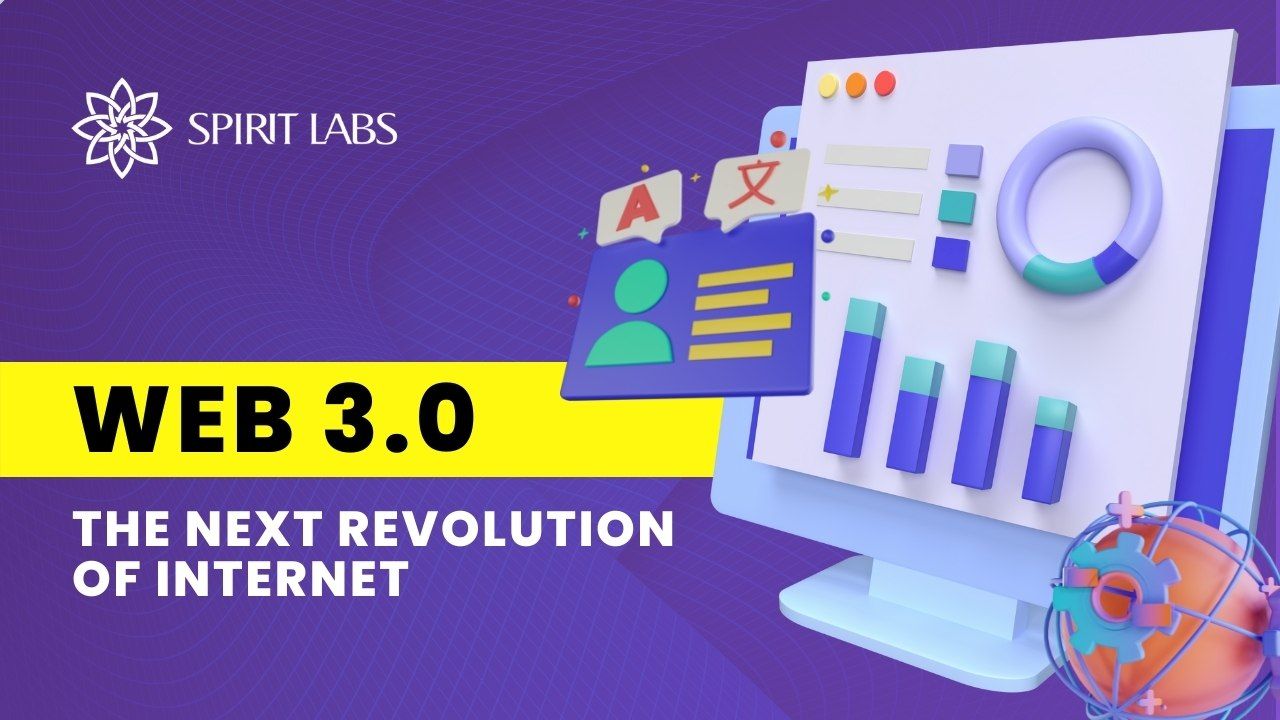
Top 3 Programming Languages for Beginners
The world is expanding digitally and with every aspect of our lives becoming digital, the demand for computer experts is skyrocketing each day. Therefore, having the knowledge of programming languages has become crucial for every IT professional. In fact, programming languages sit at the epicenter of this ever-growing field of Computer Science.
If you are a beginner in programming, learning a new language or a new framework is essential. As a fresher in the field of programming language, make sure that you remain steady in both learning and coding. However, it can be daunting and confusing for you to choose the best one out of a pool of hundreds of programming languages out there.
There is no right answer, of course. Choosing the first language will depend on what kind of projects you want to work on, who you want to work for, or how easy you want it to be. Hopefully, this guide will help give you a better idea of which one you should pursue, especially for beginners.
Created by Guido van Rossum in 1991 and further developed by the Python Software Foundation, Python is always recommended if you’re looking for an easy and even fun programming language to learn first. Rather than having to jump into strict syntax rules, Python reads like English and is simple to understand for someone who’s new to programming. This allows you to obtain a basic knowledge of coding practices without having to obsess over smaller details that are often important in other languages. It was designed with an emphasis on code readability, and its syntax allows programmers to express their concepts in fewer lines of code.
Why is Python so popular?
- It’s beginner-friendly, making it popular for entry-level coders.
- It’s the fastest-growing programming language and can develop any application such as: web applications, Data science & machine learning, software development, desktop GUI applications, 3D CAD applications,…
- It’s open-source, which means it’s free to use and distribute, even for commercial purposes.
- Python’s archive of modules and libraries — bundles of code that third-party users have created to expand Python’s capabilities — is vast and growing.
- Python has a large and active community that contributes to Python’s pool of modules and libraries and acts as a helpful resource for other programmers. The vast support community means that if coders run into a stumbling block, finding a solution is relatively easy; somebody is bound to have run into the same problem before.
Besides, Python is not a very good language for Mobile application development and Game development due to the consumption of more memory and its slow processing speed while compared to other programming languages. Additionally, Python’s structures demand more memory space. This language is not suitable to use for development under limited memory restrictions.
JavaScript is a dynamic computer programming language. It is lightweight and most commonly used as a part of web pages, whose implementations allow client-side scripts to interact with the user and make dynamic pages. It is an interpreted programming language with object-oriented capabilities.
There are many famous social media platforms such as Facebook, Google, or YouTube, that use JavaScript in its infrastructure. JavaScript is famous for its various frameworks, such as Node.js, and you get a language capable of server-side scripting too. Not only this, with the use of JavaScript, one can also build full-scale games in an external game engine or the browser using JavaScript. JavaScript is mainly used for Front-end and back-end web development, mobile apps and developing games.
Why you should choose JavaScript:
- It’s simple: JavaScript is easy to understand and learn. The structure is simple for the users as well as the developers. It is also very feasible to implement, saving developers a lot of money for developing dynamic content for the web.
- It’s speedy: Since it is an interpreted one, it reduces the time required by other programming languages like Java for compilation. JavaScript is also a client-side script, speeding up the execution of the program as it saves the time required to connect to the server.
- It’s versatile: JavaScript is now capable of front-end as well as back-end development. Back-end development uses NodeJS while many libraries help in front-end development like AngularJS, ReactJS, etc.
- It has rich interfaces: JavaScript provides various interfaces to developers for creating catchy web pages such as: HTMLMediaElement, GeoLocation APIs, Notification API… . Drag and drop components or sliders may give a rich interface to the webpages. This leads to improved user-interactivity on the webpage.
- About the server Load: JavaScript operates on the client-side, so it reduces the demand on servers overall, and simple applications may not need a server at all.
However, JavaScript also has certain limitations. JavaScript doesn’t have any multithreading or multiprocessor capabilities, and lacks debugging facilities. Plus, while server-side scripts always produce the same output, different browsers sometimes interpret JavaScript code differently. These days the differences are minimal, and you shouldn’t have to worry about it as long as you test your script in all major browsers.
First introduced by JetBrains in 2011 and a new language for the JVM, Kotlin took inspiration from many programming languages, including (but not limited to) Java, Scala, C# and Groovy. One of the main ideas behind Kotlin is being pragmatic, i.e., being a programming language useful for day-to-day development, which helps the users get the job done via its features and its tools. Thus, a lot of design decisions were and still are influenced by how beneficial these decisions are for Kotlin users. So, it is a suitable programming language for beginners.
We cannot deny the fact that Android is the highest-selling and most used operating system globally and Google has declared Kotlin as the primary language for Android development. Hence, for those who want to jump into Android development, the best programming language is Kotlin. This is a cross-platform general-purpose coding language that gives you full interoperability with Java. Also the use of Kotlin is increasing in fields such as server-side development, web and cloud development, data science, etc. Therefore, learning Kotlin in 2021 can take you a long way in furthering or starting your career as a developer. Kotlin is mainly used for android app development, software and web development, data science and server-side development.
The pros of Kotlin programming language:
- Easy to learn: Kotlin’s syntax and design are simple to comprehend and yet very powerful to use. This is a key reason why Kotlin has surpassed Java as being the go-to language for Android app development.
- Interoperable with Java: One of the biggest issues with picking up a new language is that if you have an existing project or are working as a team, then there is a ton of migration to be done. The beauty of Kotlin is that it’s 100% interoperable with Java. You don’t have to immediately stop using Java or swap out all the code, you can use both. And while doing so, adding more and more Kotlin incrementally so migration is smooth.
- Extensions: Extension functions give you a way to add functionality to existing classes (even Java classes) without a full rewrite to Kotlin. This means you can take advantage of Kotlin’s powerful features without having to abandon all the skills you’ve gained while building existing apps. It allows recovering views from Activities, Fragments, and Views in an amazingly seamless way. It also builds a local view cache. One such extension is ‘Synthetic’ Extension.
- No more Null Pointer Exceptions: One of the major issues with Java was Null Pointer Exception which leads to Android Apps crashing frequently. Every developer has probably faced this problem. Kotlin, on the other hand, is completely null safe, which prevents this exception from happening. This advantage alone has prompted many developers to make the switch and if you’ve encountered it then you know.
- Reliable and safe: Kotlin is far more safe and reliable than Java. The probability of bugs and errors from Kotlin is a lot lower thanks to preventable issues. And errors that do occur are detected during compile time itself, which is a great advantage in reliability over Java.
Though being very close to Java, Kotlin still differs in many aspects. In certain instances, Kotlin works faster than Java, especially in the course of incremental constructions. But note that when it comes to neat building, Java will always generate growth.
We have introduced to you 3 programming languages for beginners. As we first mentioned above, this is just a guide for you, the programming language you pursue will depend on your career development goals as well as the projects you want to develop and work on. Hope this blog will somehow help you find the right one to learn, especially for beginners.
REFERENCES:
- Article: 7 Best programming languages for beginners to learn in 2021 by Rakhee Sharma
- Blog: What’s the Best Programming Language to Learn First? It Depends by Alex McPeak
- What Is Python Used For? A Beginner’s Guide by Coursera
- JavaScript — Overview by Tutorialspoint
- Article: Pros and Cons of JavaScript — Weigh them and Choose wisely!
- Article: The Advantages and Disadvantages of JavaScript
- Blog: Why You Should Learn Kotlin in 2021


